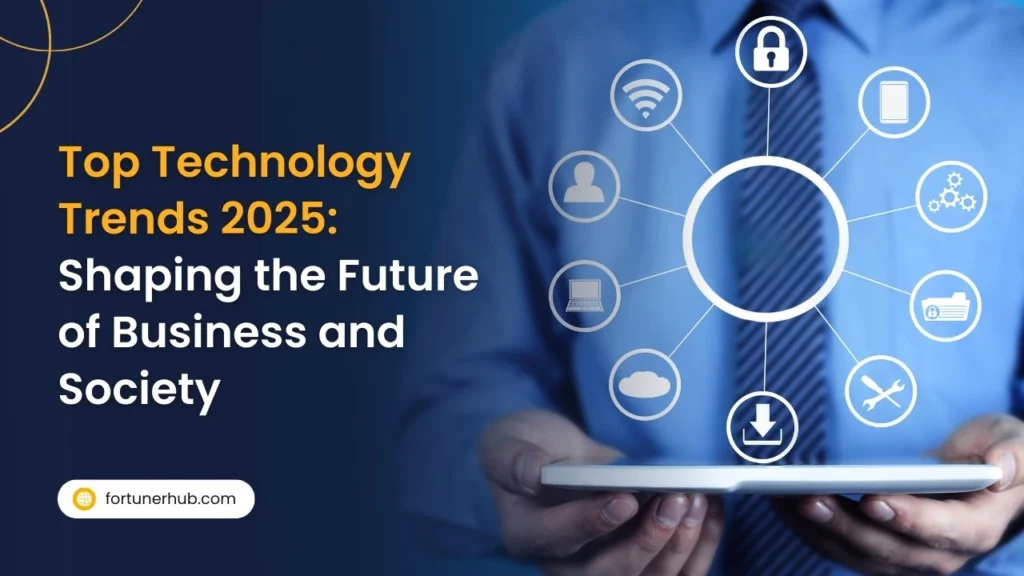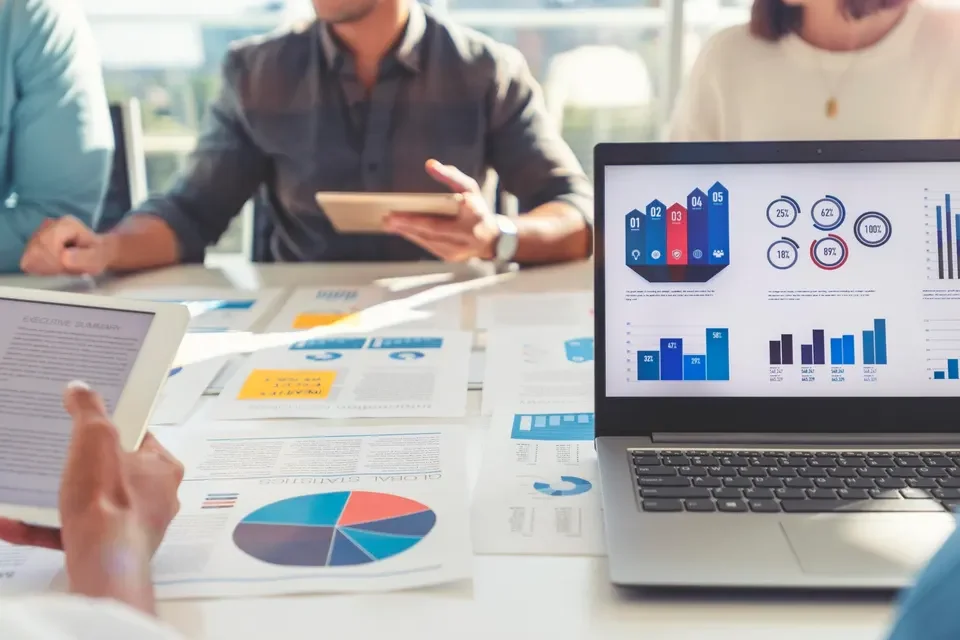The global business News landscape in 2025 is undergoing a profound transformation, driven by technological advancements, shifting consumer behaviors, and evolving economic policies. As companies navigate this dynamic environment, several key trends are reshaping industries, redefining strategies, and influencing markets worldwide. From the explosive growth of artificial intelligence (AI) to the increasing emphasis on sustainability, these trends are critical for businesses aiming to stay competitive. This article explores the top trends shaping the global market in 2025, offering insights for entrepreneurs, investors, and business leaders to thrive in this rapidly changing world. Stay informed with the latest developments on Likiy.net and discover how these trends can impact your business News strategy.
The Rise of Generative AI and Intelligent Enterprises
Artificial intelligence, particularly generative AI, continues to dominate the business news landscape in 2025. Following the launch of transformative tools like ChatGPT in 2022, generative AI has become a cornerstone of business News innovation, with a market valuation of approximately $60 billion and accounting for 30% of the overall AI market. Businesses News are moving beyond experimental phases, integrating AI into core operations such as predictive analytics, decision-making, and customer support. According to research, 77% of companies worldwide are either using or exploring AI, with 50% reporting improved customer support capabilities through 24/7 AI-driven solutions. This shift is creating “smart enterprises” where data flows seamlessly across departments, enabling real-time insights and automation. For instance, AI-powered tools are enhancing supply chain efficiency and personalizing customer experiences at scale. To learn more about leveraging AI for your business, check out our guide on AI-driven business strategies or explore insights from Forbes. However, challenges like AI data security and bias mitigation remain critical, requiring businesses news to adopt responsible AI practices to maintain consumer trust.
Social Commerce and the Evolution of E-Commerce
E-commerce continues its robust growth, with global sales reaching $6.9 trillion in 2024 and projected to hit $8.1 trillion by 2026. While traditional e-commerce remains strong, social commerce is emerging as a game-changer, expected to reach $1.2 trillion in 2025, growing three times faster than traditional e-commerce. Platforms like TikTok and Instagram are transforming into powerful sales channels, with in-feed TikTok ads proving 23% more memorable than TV ads. Businesses news are capitalizing on this trend by building online communities and leveraging social media marketing, with search volume for “social media marketing” rising 141% over the past decade. Consumers, particularly younger demographics, are drawn to seamless, personalized shopping experiences on social platforms. For example, categories like clothing, electronics, and home decor are seeing significant gains in social commerce. To stay ahead, business news must integrate omnichannel strategies to ensure a unified brand experience across online and offline touchpoints. Discover how to optimize your e-commerce strategy with our article on e-commerce trends or refer to Exploding Topics for detailed market insights.

Sustainability and the Circular Economy
Consumer demand for sustainability is reshaping business models in 2025. Research from IBM and the National Retail Federation indicates that 50% of U.S. consumers are willing to pay more for sustainable products, while 85% globally have shifted toward eco-friendly purchasing habits over the past five years. This has propelled the adoption of the circular economy, where business news focus on minimizing waste through reuse, recycling, and repair services. Retail giants like Patagonia and Levi’s are leading the way with buy-back programs and repair services, reducing raw material costs and boosting customer loyalty. A 2022 survey found that 80% of retailers investing in sustainability reported increased customer retention. However, the potential rollback of policies like the U.S. Inflation Reduction Act could slow progress, particularly if incentives for clean energy diminish. Business news must balance profitability with environmental responsibility to meet investor and consumer expectations. Learn more about sustainable practices in our guide on building a green business or explore Deloitte Insights for expert analysis on ESG trends.
Automation and Digital Transformation
Automation is revolutionizing business news operations, with 67% of companies using process automation to enhance visibility across systems. In 2025, business news are prioritizing digital transformation to turn unstructured data into actionable insights, enabling faster and more effective decision-making. The IT industry is seeing significant growth in cloud computing, cybersecurity, and AI-driven solutions, with companies increasing IT spending to stay competitive. For small businesses, automation offers opportunities to streamline operations, such as inventory management and customer relationship management (CRM). However, challenges like labor shortages, driven by an aging population in developed countries, are pushing companies to rely more heavily on automation. To understand how automation can benefit your business, visit our resource on automation tools for small businesses or check out Quantive for strategies on building resilient operations.
Geopolitical and Economic Uncertainties
Global economic growth is projected at a modest 3% in 2025, tempered by trade tensions, inflation, and geopolitical instability. The incoming U.S. administration’s protectionist policies, including proposed tariffs, are creating uncertainty for global markets. These tariffs could increase input prices, impacting inflation worldwide, as noted by the European Central Bank. In India, the Business Today BT-C Fore Business Confidence Index reflects cautious optimism at 50.2, driven by RBI rate cuts and easing inflation but tempered by concerns over U.S. tariffs and slowing domestic growth. Business news must build resilience to navigate these disruptions, focusing on supply chain diversification and risk management. Our article on supply chain resilience offers practical tips, while CNBC International provides updates on global trade dynamics.
Business News is essential for staying informed about global economic trends and market developments. Business News provides insights into corporate strategies, financial performances, and industry shifts. By following Business News, investors and entrepreneurs can make data-driven decisions to navigate competitive markets. Whether it’s mergers, acquisitions, or stock market updates, Business News keeps stakeholders ahead of the curve. Staying updated with Business News ensures professionals remain knowledgeable about opportunities and challenges in the business world.
The Rise of Autonomous Systems and Robotics
Autonomous systems, including robotics and digital agents, are moving from pilot projects to widespread adoption in 2025. These systems are enhancing logistics, manufacturing, and customer service by learning and adapting to dynamic environments. The robotaxi market, led by companies like Waymo and Tesla, is set to expand, with Tesla’s Cybercab expected to launch in Texas and California. Meanwhile, air taxis are poised to transform urban transportation, with Joby Aviation planning services in New York City. However, scaling these technologies faces challenges like supply chain delays and regulatory hurdles. Businesses investing in autonomous systems must address infrastructure and talent gaps to succeed. For more on this trend, explore our piece on emerging technologies or visit McKinsey for a deep dive into frontier technologies.
Hyper-Personalization and Customer Experience
Customer experience (CX) is becoming the key differentiator in 2025, with business news leveraging AI and data analytics for hyper-personalized interactions. Consumers expect tailored experiences, and companies that excel in omnichannel strategies are gaining a competitive edge. Real-time data enables businesses to anticipate customer needs, from personalized product recommendations to seamless online-to-offline transitions. This trend is particularly evident in retail, where 70% of consumers expect businesses to use AI to enhance their experiences. To master CX, business news must invest in data-driven tools and train employees to deliver exceptional service. Check out our guide on improving customer experience or refer to Accenture for insights on building customer trust.
Cybersecurity and Data Privacy
As digital transformation accelerates, cybersecurity remains a top priority. AI-driven attacks and ransomware are increasing, prompting businesses to adopt robust security measures. The Corporate Transparency Act and evolving AI regulations are reshaping compliance requirements, particularly for data privacy. Companies must review security protocols, train employees, and invest in endpoint protection to safeguard sensitive data. Investors are also scrutinizing climate and ESG disclosures, demanding transparency and accountability. For tips on strengthening your cybersecurity framework, see our article on cybersecurity best practices or explore Wolters Kluwer for legislative updates.
Skills-Based Hiring and Workforce Evolution
The shift toward skills-based hiring is gaining momentum in 2025, driven by labor shortages and changing workforce dynamics. Companies are prioritizing candidates’ skills over traditional credentials, with training programs to support upskilling. This approach enhances diversity and opens opportunities for non-traditional candidates. However, business news must navigate economic pressures, such as rising living costs, to retain talent. Legislative changes, like expanded retirement benefits for part-time workers, are also influencing HR strategies. Learn how to implement skills-based hiring in our guide on modern HR practices or visit Harvard Business School for research on workforce trends.
Business News offers critical updates on global trade and economic policies. Business News informs readers about market fluctuations and investment opportunities. Through Business News, analysts track corporate earnings and sector performance. Business News also sheds light on startup ecosystems and entrepreneurial ventures. Engaging with Business News helps professionals anticipate and strategize for future market trends.
Conclusion
The global market in 2025 is defined by innovation, resilience, and adaptability. From AI-driven transformation to sustainable practices, businesses must stay agile to capitalize on opportunities and mitigate risks. By embracing these trends—generative AI, social commerce, sustainability, automation, and more—companies can position themselves for success. Stay updated with the latest business insights on Likiy.net and explore external resources like Bloomberg for comprehensive market analysis. As the year unfolds, proactive strategies will be key to thriving in this ever-evolving landscape.

Additional FAQs on 2025 Business Trends
1. How can businesses prepare for the impact of generative AI in 2025?
Businesses should start by identifying repetitive tasks suitable for AI automation, such as customer inquiries or data analysis. Investing in scalable AI tools like ChatGPT Enterprise or Salesforce Einstein can streamline operations, with studies showing a 30% productivity boost for early adopters. Additionally, training employees on AI ethics and data governance is crucial to address risks like bias, which affects 25% of AI implementations, per industry reports. Explore our guide on AI integration for businesses for actionable steps.
2. What are the risks of relying heavily on social commerce for sales?
While social commerce is booming, risks include platform algorithm changes, which can reduce visibility overnight, and high competition, with 60% of brands vying for attention on platforms like Instagram. Businesses must diversify by maintaining standalone e-commerce sites and using analytics to track ROI. Our article on balancing social and traditional e-commerce offers strategies to mitigate these risks.
3. How can small businesses compete with large corporations in sustainability?
Small businesses can adopt affordable sustainability practices like using local suppliers to reduce carbon footprints or offering digital receipts to cut waste. Partnering with platforms like Patagonia’s Worn Wear for inspiration can help. Data shows that 65% of consumers prefer small businesses with transparent eco-practices. Check https://likiy.net/ for case studies on small business sustainability.
4. What are the cost implications of adopting automation in 2025?
Initial automation costs can range from $10,000 to $100,000 for small businesses, depending on tools like UiPath or cloud-based CRM systems. However, long-term savings are significant, with 45% of businesses reporting reduced operational costs within a year. Start with low-cost solutions like Zapier for workflow automation. Our resource on cost-effective automation breaks down budgeting tips.
5. How do geopolitical uncertainties affect small businesses compared to large enterprises?
Small businesses are more vulnerable to tariff-driven cost increases, which can raise input prices by 15-20%, compared to larger firms with diversified supply chains. To counter this, small businesses should explore regional suppliers and negotiate flexible contracts. Our article on navigating economic uncertainty provides practical advice, while CNBC International tracks global trade updates.
6. What are the regulatory challenges for autonomous systems in 2025?
Autonomous systems like robotaxis face strict regulations, particularly in the U.S. and EU, where safety certifications can delay deployment by 12-18 months. Businesses must stay updated on local laws and invest in compliance teams. For example, Tesla’s Cybercab faces scrutiny over data privacy. Visit McKinsey for regulatory insights or our guide on autonomous technology adoption.
7. How can businesses measure the ROI of hyper-personalization efforts?
Track metrics like customer retention rates, which increase by 20% with personalized experiences, and conversion rates, which can rise by 10-15% with AI-driven recommendations. Tools like Adobe Experience Cloud provide dashboards for real-time ROI analysis. Learn more in our article on measuring customer experience success.
8. What are the emerging cybersecurity threats businesses should watch in 2025?
AI-powered phishing attacks and deepfake scams are rising, with 30% of cyberattacks in 2024 using generative AI, per industry data. Businesses should adopt multi-factor authentication and AI-based threat detection like CrowdStrike Falcon. Regular employee training reduces breach risks by 40%. Check our cybersecurity checklist or Wolters Kluwer for compliance updates.
9. How does skills-based hiring address diversity in the workplace?
Skills-based hiring focuses on competencies, reducing bias in traditional degree-based recruitment. This approach has increased workforce diversity by 25% in adopting companies, per 2024 studies. Platforms like LinkedIn Learning offer assessments to identify talent. Our guide on diversity in hiring provides implementation tips.
10. What role does data analytics play in the circular economy?
Data analytics helps track resource usage and waste, enabling businesses to optimize recycling and reuse processes. Tools like IBM Watson Sustainability Insights can reduce material costs by 15-20% by identifying inefficiencies. For practical steps, see our article on data-driven sustainability or visit IBM.
For more detailed insights or tailored advice, visit the Likiy.net contact page or explore our related articles on business trends and strategies.
11. How can businesses integrate blockchain without significant infrastructure costs?
Small businesses can adopt cloud-based blockchain platforms like IBM Blockchain or Ethereum-based solutions, which reduce setup costs by 50% compared to on-premises systems. Start with pilot projects for supply chain tracking to test ROI. Our guide on blockchain for small businesses offers affordable strategies, and CoinDesk covers DeFi trends.
12. What are the benefits of hybrid work models for small businesses in 2025?
Hybrid models reduce office costs by up to 20% while attracting talent, with 60% of job seekers prioritizing flexibility. Tools like Microsoft Teams enhance collaboration, but businesses must address digital fatigue through wellness programs. See our article on optimizing hybrid work environments or Gartner for workforce data.
13. How do subscription models improve customer retention?
Subscription models foster loyalty by offering predictable pricing and exclusive perks, reducing churn by 15% on average. Personalization, like Netflix’s tailored content, boosts retention further. Businesses should analyze churn metrics monthly to refine offerings. Check our guide on subscription business strategies or Statista for market insights.
14. What are the challenges of scaling DeFi solutions for businesses?
DeFi faces high transaction fees on some platforms and regulatory uncertainty, with 35% of businesses citing compliance as a hurdle. Partnering with trusted platforms like Chainlink can mitigate risks. Learn more in our article on DeFi adoption challenges or explore CoinDesk.
15. How can businesses balance innovation with regulatory compliance in 2025?
Businesses should invest in compliance software and hire specialists to navigate AI, blockchain, and ESG regulations. Regular audits reduce non-compliance risks by 30%. Our guide on regulatory compliance for innovators offers practical tips, while Wolters Kluwer provides legal updates.
For more in-depth answers or personalized advice, contact our experts at Likiy.net contact page or explore related articles on the site.

Top Products Shaping Business Trends in 2025
To help businesses capitalize on these trends, here are some of the top products and tools recommended for 2025. These selections focus on AI, sustainability, automation, and customer experience solutions that are gaining traction in the market.
- ChatGPT Enterprise (OpenAI): A secure, scalable version of the popular AI model tailored for business use. It enables generative AI integration for content creation, customer service, and data analysis, with enterprise-grade privacy features. Ideal for intelligent enterprises. Learn more at OpenAI.
- Salesforce Einstein: An AI-powered CRM platform that automates sales processes, provides predictive insights, and personalizes customer interactions. It’s a leader in hyper-personalization and automation, helping businesses boost efficiency by up to 30%. Explore at Salesforce.
- Shopify Plus with Social Commerce Integrations: Advanced e-commerce platform supporting seamless social selling on TikTok, Instagram, and Facebook. Features include AR try-ons and live shopping tools, driving social commerce growth. Check out Shopify.
- Patagonia Worn Wear App: A circular economy tool for sustainability, allowing customers to buy, sell, and repair used clothing. Businesses can adopt similar models to reduce waste and enhance brand loyalty. Visit Patagonia.
- UiPath Automation Platform: A robotic process automation (RPA) solution for digital transformation, automating repetitive tasks across finance, HR, and operations. It’s user-friendly for small businesses and scales for enterprises. See UiPath.
- Tesla Optimus Robot: An advanced humanoid robot for manufacturing and logistics, embodying the rise of autonomous systems. Early adopters are using it for warehouse tasks, promising 40% productivity gains. Details at Tesla.
- Adobe Experience Cloud: A suite for hyper-personalized marketing, leveraging AI to deliver tailored content across channels. Essential for improving customer experience in retail and e-commerce. Learn more from Adobe.
- CrowdStrike Falcon Platform: Leading cybersecurity solution using AI to detect and respond to threats in real-time. Critical for protecting data in an era of increasing AI-driven attacks. Explore CrowdStrike.
- LinkedIn Learning with Skills Assessments: Tools for skills-based hiring, offering courses and certifications to upskill workforces. Helps HR teams identify talent based on competencies rather than degrees. Visit LinkedIn.
- IBM Watson Sustainability Insights: An AI tool analyzing supply chains for ESG compliance, helping businesses track carbon footprints and optimize for sustainability. Ideal for circular economy adoption. Check IBM.
These products are selected based on their alignment with 2025 trends and positive reviews from industry reports. For more recommendations, browse our product reviews section on Likiy.net.
